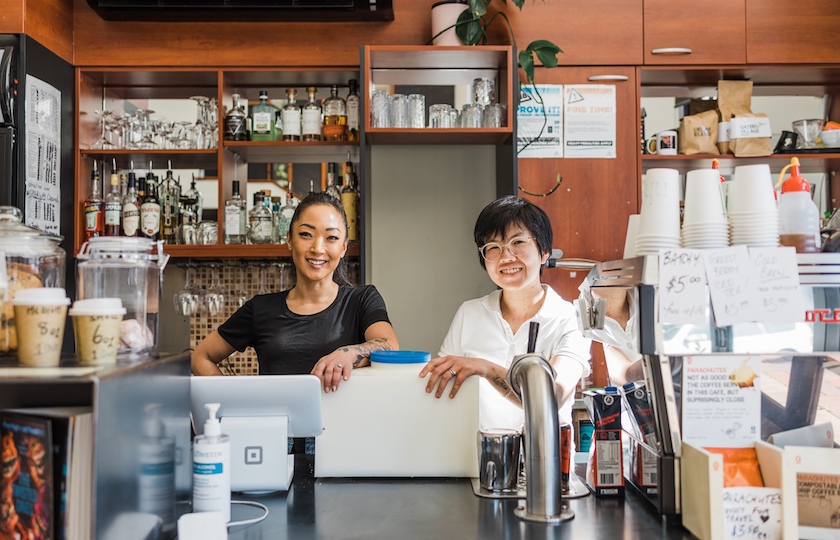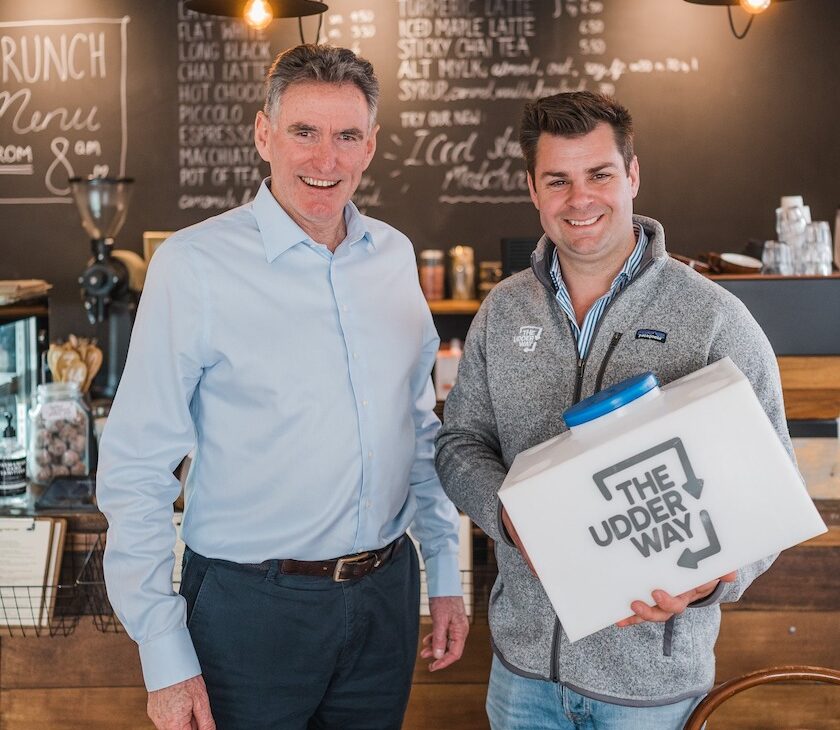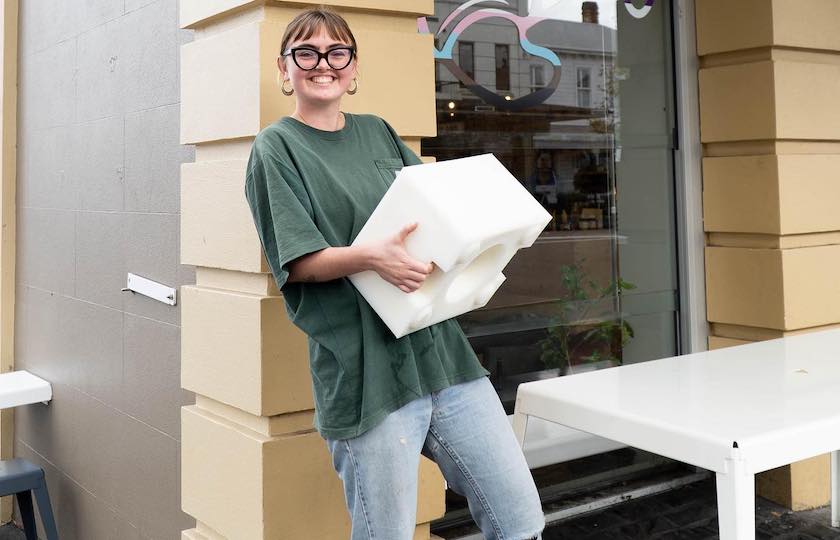New Zealand milk supplier Green Valley Dairies has deployed reusable 18-litre milk kegs that it believes will help a typical cafe eliminate as many as 10,000 single-use milk bottles a year.
Australian company The Udder Way – which specialises in designing and producing high-quality reusables that eliminate the need for single-use plastics – teamed up with the Waikato milk company to supply the kegs, which were launched in New Zealand on World Milk Day (June 1).
Green Valley will fill the 18-litre milk kegs with organic or standard milk and ship them to food service clients. The kegs have an estimated lifespan of eight years, and once past their use-by date can be recycled and turned into new kegs.
The kegs have also found support among organic retailers where they can be connected to dispensers allowing consumers to fill their own reusable containers and buy the actual volume of milk they want, rather than be restricted to standard pack sizes sold in single-use containers in traditional food stores.

“This is the most exciting reusable packaging solution we have come across,” said Green Valley Dairies GM Mark Pulman. “It’s great to have an alternative option that’s specifically designed for both the dairy and food service industries, with all the relevant certifications. We’re also proud to be playing our part in helping our customers reduce their environmental footprint.”
Based on order volumes of one and two-litre containers, Green Valley estimates cafe and hospitality clients will be able to save on between 7000 and 10,000 milk bottles annually.
One early adopter of the kegs is Auckland bakery cafe Daily Bread which has three retail stores, whose manager Emily Hancock describes them as “amazing”.
“We’re always looking for ways to reduce our environmental footprint, so the decision to change to The Udder Way milk kegs was a no-brainer. The kegs are easy to use, take up less space than milk bottles and create much less waste at the end of each day.”
The Udder Way’s founder Ed Crick came up with the solution when he was running three cafes in the Australian state of Tasmania.
“We were going through almost 30,000 plastic milk bottles a year, which really concerned me. We were making the effort to use things like sustainable coffee cups and meanwhile, our bins were overflowing with plastic bottles,” he says.

He launched The Udder Way in Australia in 2021, with the goal of removing 100 million single-use plastic milk bottles globally, each year.
“Two years on from launching our kegs in Australia, we’re now removing around 1.6 million milk bottles from waste a year. With more and more business coming on board every day on both sides of the Tasman, we anticipate that number to triple by the end of this year,” says Crick.
The Udder Way 18-litre milk kegs can be connected to existing milk dispensing units or a simple tap system can be provided, allowing baristas to easily pour milk without the waste and clutter of plastic milk bottles.
Meanwhile, in Australia, Bega Group has adopted recycled plastic bottles across all of its beverage range



